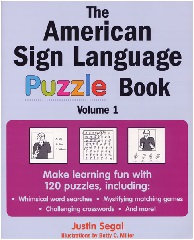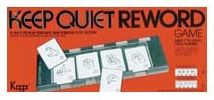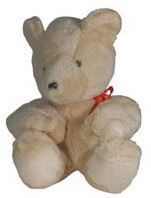Blog Roll: (Contributors)
» Hulet Smith, OT
» Megan Smith, PT
» Mike Price, OT
Topics:
Adaptive Devices
Adult Tricycles
Air Purifier
Allergy
Alternative Communication Devices
Alzheimer's Dementia Products
Aquatic Products
Arthritis Relief Products
Autism
Back Relief
Ball Pit/Pool
Bariatric
Bath Benches
Bathtub Lift
Bed Rails
Bedsores / Decubitus
Bidet
Body Solid Exercise Products
Breast Feeding Products
Bushel Trucks
Cancer
Catheters
CEU
Changing Bench
Child Car Seats
Child Care Products
Christmas Gifts
Clinic/Medical Equipment
Clinical Furniture
Cold and Flu
Communication Devices
Compression Garments
Computer Products
CPAP
Crutches
Daily Assistance Products
Daylight Lamps
Dental Care
Diabetes
Doctor's Office
Dysphagia
Electrodes
Electrolarynx
Emergency Preparedness
Ergonomic Equipment
Exam Tables
Exercise Products
Eyecare
Family Tricycles
First Aid Kits
Floor Scales
Fluidotherapy
Foot Drop
Foul Weather Gear
Furniture
Gait Trainers
General Articles
General Posts
Glassless Mirrors
Hand Sanitizer
Head Protection Helmets
Hearing Impaired
Heart Health
Heating Pad
Hip Fractures
Home Assistance Products
Home/Office Assistance
Hospital Beds
Hoyer Lifts
Hyperbaric chamber
Hyperthermia/Hypothermia
Ice/Hydration Carts
Impotence Products
Incontinence Products
Infection Control Gowns
Inspirational Stories
Lift Chairs
Light Therapy
Low Vision Products
Massage Tables & Chairs
Massage Units
Maternity
Medical Facility Products
Medical Scales
Multi-Sensory Environment
Natural Healing
Nebulizers
Non-Hospital Bedding
Nutritional Supplements
Office Furniture
One-Handed Products
Operating Room Devices
Ostomy Products
Oxygen Compressors
Oxygen Concentrator
Oxygen/Nebulizer Masks
Pain Relief
Paraffin Unit
Patient Lift
Patient Lifts
Patient Restraints
Patient Transfer Systems
Pediatric Bath Chairs
Pediatric Furniture
Pediatric Learning
Pediatric Recreation
Personal Listening Devices
Personal Warming Products
Physical Therapy
Pill Organizers
Pillows
Playground Equipment
Pool Lifts
Press Releases
Procedure Chairs
Pulse Oximeter
Reading Assistance
Reference Materials
Rehab Equipment
Rehabmart News
Rehabmart Newsletter
Respiratory Health
Rollators
Saunas
Scooters
Seniors
Shower Chairs
Shower Commode Chairs
Shower Gurney
Showers Chairs
Side Access Bathtubs
Skin Tear
Special Needs Dinnerware
Special Needs Seating
Special Report Articles
Splints
Sport Injuries
Standers
Staying Home
Stethoscopes
Stimulus Reward Toys
Stress Relief
Stroke
Strollers
Summertime Products and Summertime Fun
Talking Products
Therapy Balls
TheraTogs
Thermometers
Traction Devices & Tables
Treatment Tables
Ultrasound
Vibroacoustic Therapy
Vision Products
Walk-In Bathtub
Walking Aids
Walking Boot
Weighted Wearables
Wheelchair Accessories
Wheelchair Cushions
Wheelchair Lifts
Wheelchair Ramps
Wheelchair Transfer Systems
Wheelchairs
Women's Health
Work Hardening Products
Wound Care
6 Ways to Teach Hearing Impaired Children Sign Language
There are hundreds of reasons why a child is born hard of hearing or becomes deaf early in life. The number of hearing impaired Americans has doubled just in the last three decades alone and includes some 35 million children and adults. Almost a million Americans have been diagnosed with severe to profound hearing loss, and 80, 000 are under eighteen years old. Learning that a child has a hearing impairment sends a parent’s mind racing, wondering about the long term effects it could have on their entire lives, regardless of the cause or intensity of deafness. Children who are hearing impaired are generally going to have a harder time learning vocabulary, grammar, syntax, slang, and new terminology.
A parent starts researching for more detailed information while trying to figure out how this happened or why it is so, as all too often a precise reason cannot be easily identified. The parent learns that conductive deafness (Otitis Media) is the most common type and can be temporary, but it could also be sensori-neural deafness which is permanent, or even a mixture, referred to as mixed deafness. The possible causes for childhood hearing impairments run the gamut from hereditary, complications during pregnancy, ototoxic drugs, ear infections, head injuries, prolonged lack of oxygen, or being exposed to loud noise…and all too often cannot be pegged into one cause. So parents take their child to the audiologist for help in determining all they can in regards to their child’s hearing abilities and to get hearing aid and/or hearing assistive technology (HATS) to ensure that the child is provided with every opportunity to hear to the best of his or her ability.
But parents can get so focused on providing what the child needs that quality recreational time is sometimes missing from the equation. Kids of all ages and types learn exceptionally well through specifically targeted educational toys, and hard of hearing children are not the exception! So after all of the research, doctors’ consultations, and hearing aid/technology selections, parents should not forget to throw in some games to keep the child properly stimulated.

TheSign2Me Flash Cards Beginners Series is a great way to start teaching English/Spanish speakers the basics of American Sign Language (ASL) with 28 colorful theme cards with happy, memorable pictures, with corresponding hand sign and the English and Spanish words for the sign. These easy to remember cards are offered in 5 different theme packs which include animals and colors, actions and opposites, objects and emotions, family, clothing and toileting, and even a quick start pack. These cards will not only help your little one, but are additionally beneficial for family members, caregivers, and friends. This is a great way to get the whole family involved just playing games while becoming trilingual!

The American Sign Language Puzzle Book provides more fun while learning to sign, is very memorable, and of course increases the child’s vocabulary bank. The book can be used in conjunction with the American Sign Language Phrase Book for the ultimate crash course in sign language. It contains tons of different puzzles of varying levels of difficulty including word searches, matching, scrambles, pyramids, crosswords and detailed drawings of hands signs and movements required while signing. And it is well suited for sharing with siblings’ learning as well.

Keep Quiet, a game that can be played by both deaf and hearing users, also helps players learn to fingerspell in just minutes while having fun and getting acquainted with the new ABC American Sign Language alphabet. Play Keep Quiet a few times and you’ll know how to spell out any word even if you do not know the correct hand sign.

The Sign Find - Vacations Computer CD-ROM for the deaf sends your child on adventures with Paws, the signing dog, as he travels to 14 fun-filled destinations! This amazing game is a priceless resource with over 550 American Sign Language videos that illustrate signs and some delightful games to play.

The Witch Puppet for Teaching Sign Language is perfect for an educational hand signing puppet show, your hands fit into hers for easy storytelling. Using a fun character like the Witch Puppet is a creative teaching technique that can help children remember and retain more of the lesson. Play good witch, bad witch with this attention-grabbing 2 foot tall puppet and let your imagination soar.

Honey Teddy Bear is a plush bear puppet that can be used for storytelling, or as a fun, cuddly animal for your children to play with. The puppet allows the wearer to make accurate signs and movements, which keeps the children’s attention while they have fun learning.
So bring on the signing fun with these interactive games and toys that are fun for the whole family. Everyone will compete to see who can learn the fastest, and you’ll be amazed at how much more quickly your hearing impaired child is learning vocabulary and relating to his or her world.
Alyssa Aldana,
Medical Consumer Writer
and
Hulet Smith, OT
Rehabmart Team Leader & CEO
